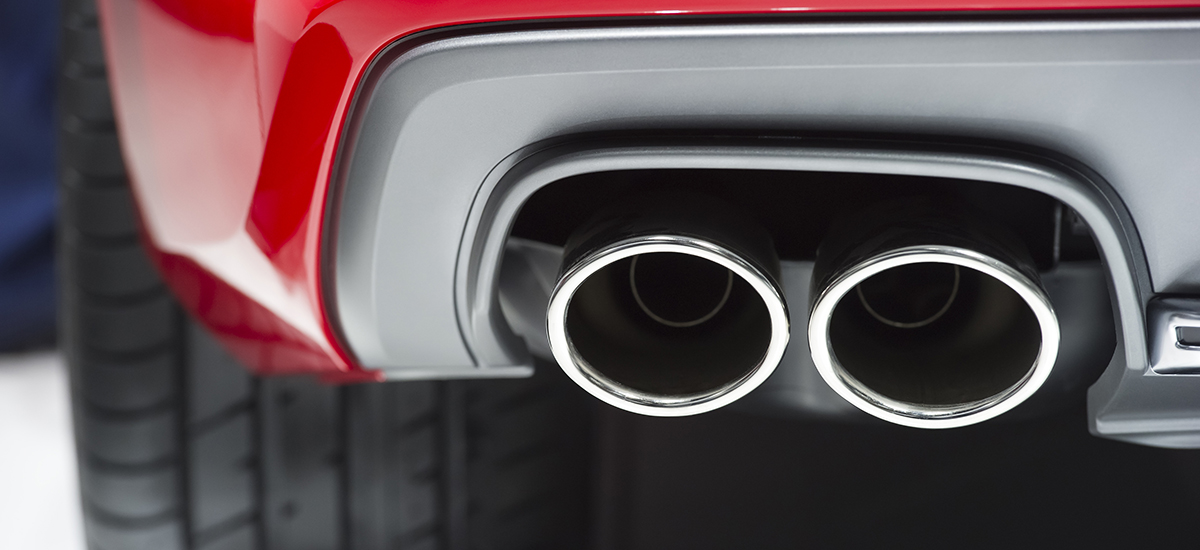
 Your Credit Estimate
Your Credit Estimate
 Your Credit
Your Credit
Your zip code helps us provide you with the most accurate vehicle pricing and vehicle availability.
We estimate your credit score to give you an idea of your monthly payments. To get an accurate payment amount, complete our credit application by clicking the Start Credit Application button below.
start credit application
It may be safe to assume that at some point in your life, you’ve heard the scream, roar, purr, or rumble of an engine that has made you turn your head, and maybe even plug your ears. Some engines sound majestic, scary, powerful, awe-inspiring, or even downright annoying, but why is that? We’ve compiled a bit of information to help you further understand why engines produce different sounds and what those sounds mean.
Simply put, sound is based on the air pressure and the interaction between the vibrations created by the pressure change and our ears. The frequencies of sound waves are the amount of times the wave oscillates over a period of time, and this determines how our brain processes and interprets it as a particular pitch. The higher the frequency, the higher the pitch, and the lower the frequency, the lower the pitch. Whether it is audible to the human ear or not, a car’s engine may produce a wide range of frequencies, however it’s root note is marked by the dominant frequency and will generally remain the same.
Sound waves are created a number of ways, especially if two metal objects are hitting each other. The volume, intensity, and type of sound created is determined by the force with which they connect. Additionally, when air passes through the constricted orifice of an exhaust pipe or other sort of chamber, it will likewise produce sound.
When it comes to an engine, there are a variety of moving parts that continuously come in contact with one another, producing constant sound. The intensity of the sound may be reduced by proper lubrication and care, whereas if parts are worn, the sound may be increased. Engines produce sound through the internal combustion process that takes place inside of the cylinders as well as through the rapid piston movement inside the cylinders. Both cylinders and pistons come in different shapes and sizes and can be made from different materials. The differences in these components create the different resonances and pitches produced in an engine.
Earlier, we mentioned an engine’s root note - the dominant frequency that an engine will produce. This sound is created by the pressure of the exhaust gases being forced out of the combustion chamber, which sends the high pressure gas out through the exhaust manifold. The rate at which these emissions reach your ear will be determined by the speed of the engine’s revolution. The higher the revolution and faster the engine speed, the greater the number of exhaust strokes performed, which leads to an increase in the rate of exhaust pulses. This is the reason an engine’s sound increases in volume and pitch as the revs increase.
Another major factor in how your engine will sound is the firing order. This can be the reason that two V8 engines sound completely different. Generally speaking, there are two main engine configurations: flat-plane cranks and cross-plane cranks.
On a flat-plane crank, the engine cylinders fire one after another on opposing sides of the “V” formation, creating a balanced, alternating, and even exhaust pulse. The cross-plane crank has an irregular firing order, sometimes producing two exhaust pulses on the same side, as opposed to alternating. This irregular firing sequence is what causes the deep rumble of an American V8 (cross-plane) as opposed to the rhythmic, even pulse rate of a Ferrari or Lamborghini V8 (flat-plane).
Every engine’s sound is going to be different. Each is a byproduct of the various cylinders, pistons, pipe diameters, bushings, the firing order, and the hundreds of pieces of metal working and clanking together. While an exhaust muffler may cancel some unpleasant sounds that may otherwise resonate in the cabin, and while there are many ways to change the sound of your engine like electronic sound enhancement, aftermarket exhausts, headers, and numerous other enhancements, the fact remains that car enthusiasts love their engine noises. And the more we understand how something works, often times, the more involved and more connected we can become to those things.
If you’re in the market for a new car and you’re looking for a new tune, come visit our extensive online inventory of new cars and find a ride that resonates with you today!